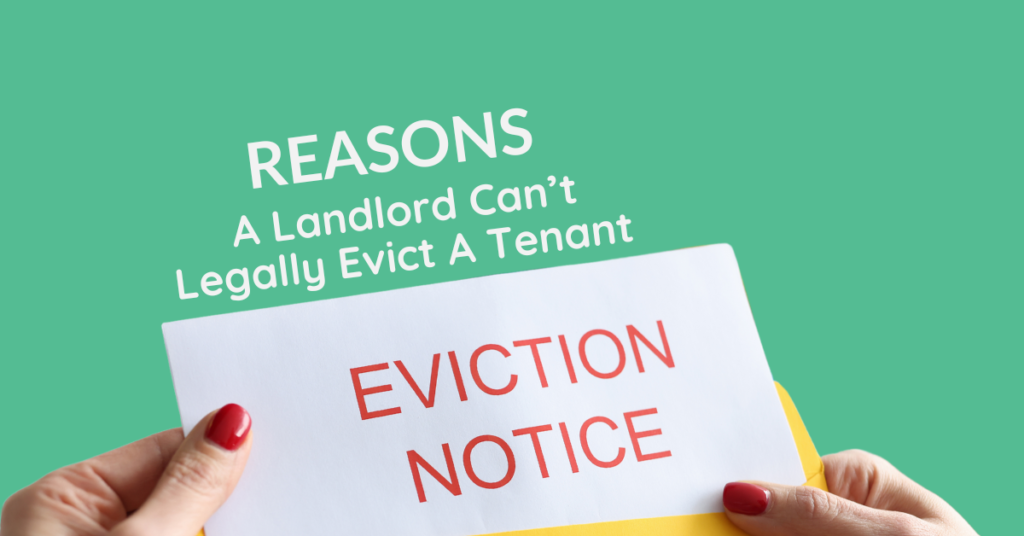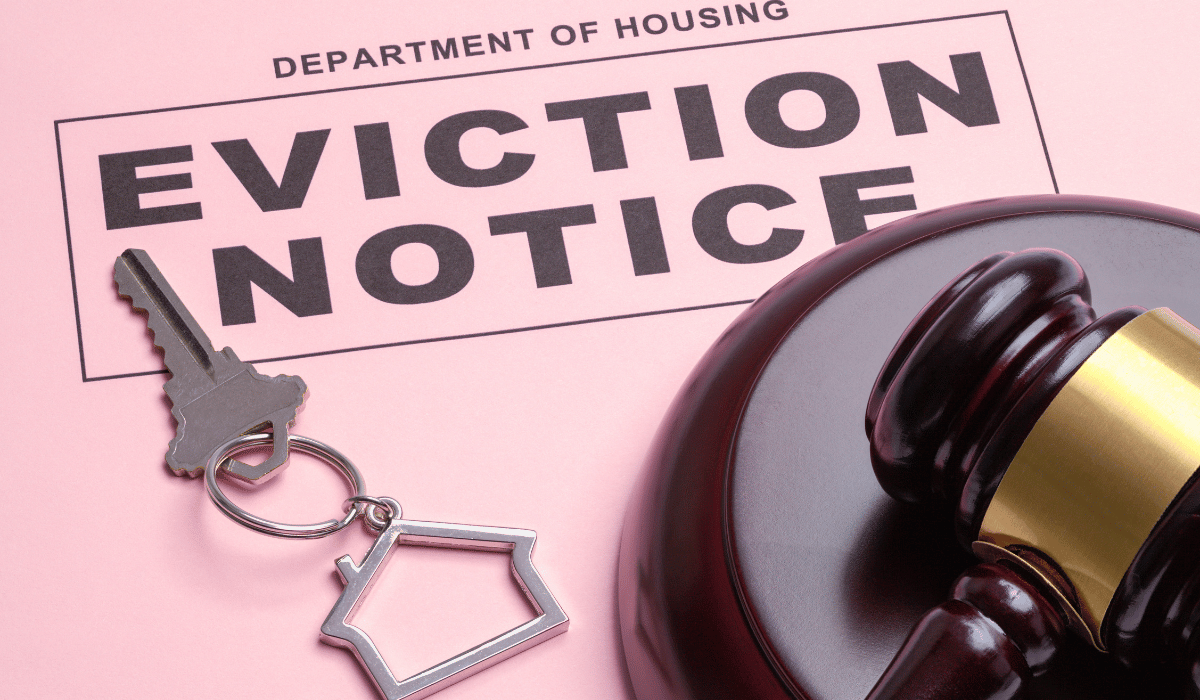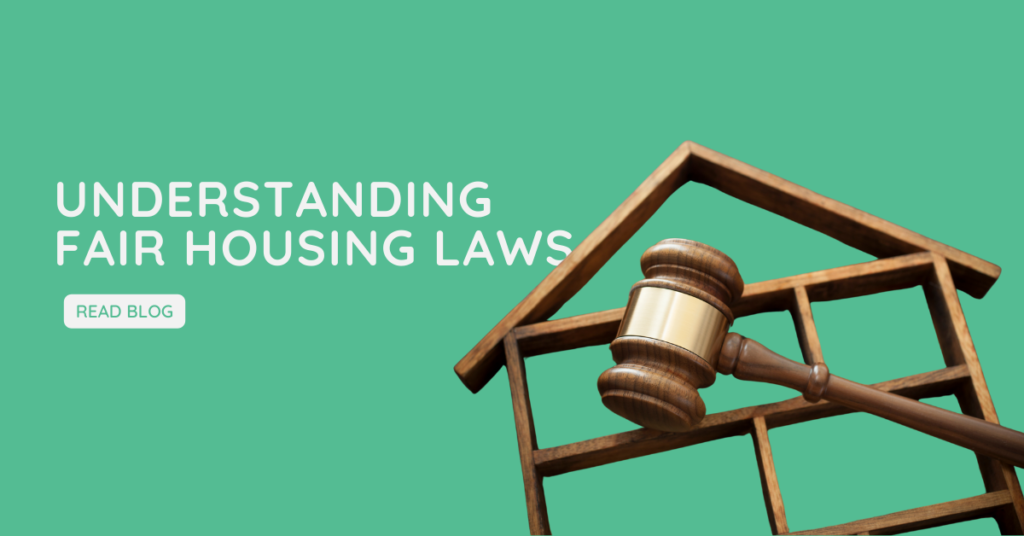What are the Reasons That a Landlord Cannot Legally Evict a Tenant? (Consequences of Illegally Evicting a Tenant)
Reading Time: 3 minutesUnderstanding the legal grounds for eviction is crucial for landlords. Evictions must follow strict legal protocols to ensure fairness and legality. Missteps can lead to severe consequences, including legal penalties and damage to the landlord’s reputation. This article explores the reasons landlords cannot legally evict tenants and the ramifications of illegal evictions. Reasons a…

Understanding the legal grounds for eviction is crucial for landlords. Evictions must follow strict legal protocols to ensure fairness and legality. Missteps can lead to severe consequences, including legal penalties and damage to the landlord’s reputation. This article explores the reasons landlords cannot legally evict tenants and the ramifications of illegal evictions.
Table of Contents
Reasons a Landlord Cannot Legally Evict a Tenant

Retaliation
Evicting a tenant in retaliation for exercising their legal rights is illegal. Common scenarios include:
- Complaints About Property Conditions: If a tenant reports unsafe or unhealthy living conditions to authorities, a landlord cannot retaliate by evicting them.
- Joining a Tenants’ Union: Tenants have the right to organize or join a union without fear of eviction.
Discrimination
Evictions based on discriminatory reasons are prohibited under federal and state fair housing laws. Illegal discrimination includes actions based on:
- Race, Color, or National Origin
- Religion
- Sex
- Familial Status
- Disability
Landlords must ensure that eviction decisions are based solely on legitimate grounds, such as lease violations or non-payment of rent.
Lack of Proper Notice
Legal evictions require proper notice. Landlords must:
- Provide Required Notice Period: Each jurisdiction has specific notice periods (e.g., 30 days, 60 days) that must be adhered to.
- Follow Correct Eviction Process: This includes delivering notices in the legally prescribed manner and ensuring all procedural steps are followed.
Failure to adhere to these requirements can render an eviction illegal.
Non-Compliance with Lease Agreement Terms
Landlords cannot evict tenants without valid reasons stipulated in the lease agreement. Examples include:
- Eviction Without Lease Violation: Evicting a tenant without a legitimate breach of lease terms is illegal.
- Misinterpretation of Lease Terms: Landlords must accurately interpret and apply lease terms. Misunderstanding or misapplying these terms can result in an unlawful eviction.
Tenant Exercising Legal Rights
Tenants are protected when exercising their legal rights, such as:
- Reporting Health or Safety Violations: Tenants can report violations without fear of eviction.
- Taking Legal Action Against the Landlord: If a tenant sues the landlord for legitimate reasons, retaliatory eviction is illegal.
Consequences of Illegally Evicting a Tenant

Legal Penalties
Landlords who illegally evict tenants may face severe legal repercussions:
- Fines and Penalties: Courts can impose substantial fines and penalties on landlords found guilty of illegal evictions.
- Potential Criminal Charges: In extreme cases, illegal evictions can lead to criminal charges, particularly if force or intimidation is used.
Tenant Compensation
Illegally evicted tenants are entitled to compensation, including:
- Payment of Damages: Landlords may be required to pay for emotional distress, lost property, and other damages.
- Reimbursement for Legal Fees and Relocation Costs: Tenants can recover the costs associated with legal proceedings and relocation expenses.
Impact on Landlord’s Reputation
Illegal evictions can severely damage a landlord’s reputation:
- Negative Publicity: News of illegal evictions can spread quickly, damaging the landlord’s public image.
- Loss of Trust: Current and prospective tenants may lose trust in the landlord, making it harder to rent properties in the future.
Prolonged Legal Disputes
Illegal evictions often lead to lengthy and costly legal battles:
- Costly and Time-Consuming Legal Battles: Landlords may face prolonged court cases that drain financial and time resources.
- Potential Court Orders to Reinstate the Tenant: Courts can order the reinstatement of the tenant, reversing the eviction and complicating property management.
Conclusion
Adhering to legal eviction procedures is essential for landlords to avoid severe consequences. Understanding the legal grounds for eviction helps maintain a fair and lawful landlord-tenant relationship. Illegal evictions not only result in financial and legal repercussions but also damage the landlord’s reputation and tenant trust. By following proper protocols, landlords can manage their properties effectively while ensuring tenants’ rights are respected.
Don’t want to worry about evicting tenants? Renting out your property can be a breeze. Green Ocean Property Management offers expert rental management services, taking the stress off your shoulders and maximizing your returns. Contact us today and experience the Green Ocean difference.
Understanding Fair Housing Laws and Avoiding Discrimination
Reading Time: 3 minutesFinding a great place to live is an essential part of building a secure and happy life. Fair housing laws exist to ensure everyone has an equal opportunity to find suitable housing. This article will guide you through these laws and how to avoid discrimination, whether you’re a renter or a property manager. Understanding…
Renovation vs. New Construction: Which is Better for Your Investment Portfolio?
Reading Time: 3 minutesReal estate investment offers many opportunities to grow wealth, but one crucial decision stands out: should you renovate an existing property or invest in new construction? Understanding the pros and cons of each option is essential to making the right choice for your investment portfolio. This article explores the factors influencing this decision, helping you…
The Benefits of Regular Property Inspections
Reading Time: 2 minutesRegular property inspections are essential for maintaining property value, safety, and overall well-being. By identifying and addressing potential issues early on, property owners can save money, avoid costly repairs, and ensure their property remains in top condition. Protecting Property Value Regular inspections can help property owners identify potential issues before they become…








